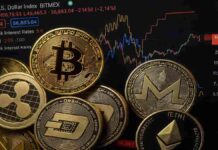# GLOBAL NEWS
In the rapidly evolving landscape of global affairs, recent developments have highlighted significant economic, financial, and geopolitical shifts across various regions. From the United States grappling with economic policy changes to Europe navigating political tensions and Asia’s burgeoning markets, the world is witnessing transformative events. This article delves into the latest news from these regions, providing insights into the implications of these developments.
## US
The U.S. economy is currently facing a complex interplay of challenges and opportunities. Federal Reserve Chair Jerome Powell recently indicated that the slowing labor market has prompted the central bank to consider further interest rate cuts. He emphasized that while inflation remains a concern, the current economic landscape presents a “challenging situation” for policymakers. Powell’s remarks came as the Fed cut its key interest rate by a quarter percentage point, a move that traders are interpreting as paving the way for additional cuts in the near future.
In corporate news, Micron Technology reported a remarkable 46% rise in sales, driven by the growing demand for AI technologies. The company’s strong earnings and optimistic outlook reflect a broader trend of increased investment in technology sectors. Meanwhile, Eli Lilly announced plans to construct a $6.5 billion manufacturing facility in Texas to bolster production of its obesity treatment, further emphasizing the pharmaceutical industry’s focus on innovative health solutions.
On the political front, tensions are rising as President Trump faces scrutiny over his administration’s handling of various issues, including immigration and healthcare. The looming threat of a government shutdown has prompted calls for bipartisan negotiations, with Senate Majority Leader Chuck Schumer urging Trump to engage with Democratic leaders. Additionally, Trump’s controversial proposal to impose a $100,000 fee on H-1B visas has sparked concerns among tech companies reliant on skilled foreign labor.
## EUROPE
Across the Atlantic, Europe grapples with its own set of challenges, particularly in the wake of geopolitical tensions exacerbated by the ongoing conflict in Ukraine. President Trump recently indicated a shift in his stance, asserting that Ukraine could reclaim all territory lost to Russia, a statement that has resonated throughout the continent. This development has led to a surge in defense stocks in Europe, reflecting heightened investor confidence in military capabilities amid the ongoing conflict.
In economic news, recent data shows that Germany’s business outlook has declined for the first time this year, raising concerns about the country’s economic recovery. Analysts suggest that the slowdown could hinder Chancellor Friedrich Merz’s plans to restore growth in Europe’s largest economy. Furthermore, inflation remains a pressing issue, with the European Central Bank (ECB) signaling that while inflation risks are “very balanced,” the economic landscape remains uncertain.
Moreover, the EU is actively seeking to strengthen its trade relations with Southeast Asian nations, particularly in light of the tariffs imposed by the U.S. on various imports. The bloc’s recent trade deal with Indonesia aims to reduce tariffs on imported cars, potentially opening new avenues for EU exports and investments in electric vehicles.
## ASIA
In Asia, markets are responding to a mix of domestic and international pressures. The recent announcement by the People’s Bank of China (PBOC) to maintain its benchmark lending rates indicates a cautious approach amidst global economic uncertainties. The central bank’s decision reflects an effort to stabilize the economy while navigating the complexities of trade relations, particularly with the U.S.
Japan’s economy is also feeling the effects of external pressures, with exports contracting amid rising tariffs. The country’s trade dynamics are further complicated by the U.S. administration’s aggressive stance on trade, which has prompted Japanese businesses to rethink their strategies.
On a more positive note, Alibaba’s shares surged following the company’s commitment to ramp up investments in AI technologies, signaling a renewed focus on innovation in the tech sector. This aligns with a broader trend across Asia, where nations are increasingly investing in technology as a means of driving economic growth.
Moreover, India’s Trade Minister recently expressed the country’s desire to enhance energy imports from the U.S. as part of ongoing trade discussions. This move comes amid efforts to secure a trade deal that could alleviate some of the economic pressures resulting from U.S. tariffs.
In conclusion, the global landscape is marked by significant economic and political developments that are reshaping the dynamics of international relations. As the U.S. navigates its monetary policy, Europe grapples with geopolitical tensions, and Asia seeks to bolster its economic resilience, the interconnectedness of these regions underscores the importance of collaborative efforts in addressing shared challenges. The coming weeks will be crucial in determining how these trends unfold and impact the global economy.





